


|
Joined:
|
26/05/2015 |
|---|---|
|
Last Updated:
|
09/01/2016 |
|
Location:
|
Phoenixville, PA, United States |
|
Climate Zone:
|
Cool Temperate |
|
Gender:
|
Male |
|
Web site:
|
www.permscape.com/ |
(projects i'm involved in)
(projects i'm following)
Back to John Stevenson's profile
Posted by John Stevenson about 7 years ago
Aquaponics has won the battle that began in 2010 for USDA Organic Labeling.
Products grown organically in aquaponics systems can now be labeled as such in the United States of America.

John Stevenson of Permscape.com reported; “This month in a razor thin decision of eight votes to seven, the National Organics Standards Board approved the use of the USDA Organic Label by aquaponics growers that meet their criteria.”
“It was suspected by many of us that the certification was going to be striped from aquaponics and hydroponics growers. The thought was Organic Certification was going to be exclusively reserved for soil growers.”
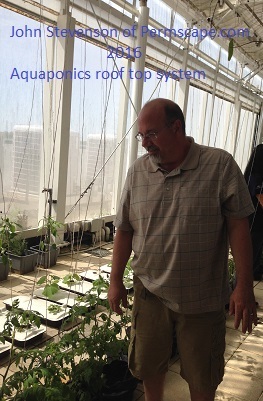
We use recirculating aquaculture effluent to feed plants (much like a mini wetland). The accepted common term used for this process of growing is “aquaponics”.
Early aquaponics systems were modeled on existing techniques of the time for hydroponic production. The work of Howard M. Resh and others was used in combination with established aquaculture models to create recycling aquaponics systems. Dr. James Rakocy’s work was the definitive research and development that led us to modern day legitimate aquaponics systems (high fish density).
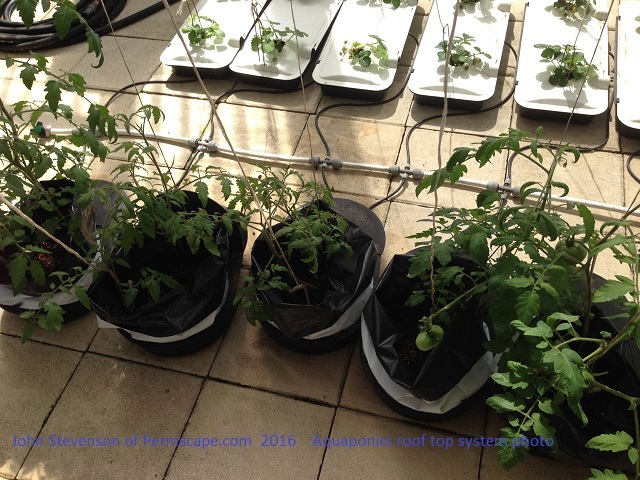
During the last couple of decades there was a mad rush to create and market “less than stellar” systems to the general public. Many so called “Aquaponics Systems” functioned like hydroponic systems. They required extensive inputs of chemical fertilizers. The fish waste itself was a negligible input. Fish served as a novelty to disguise a hydroponic system as an aquaponics system. In fact those systems encouraged lower densities of fish and frequent water changes rather than water reuse and nutrient recycling. In most of those systems the fish could be removed entirely from the system with little or no impact on fertility.
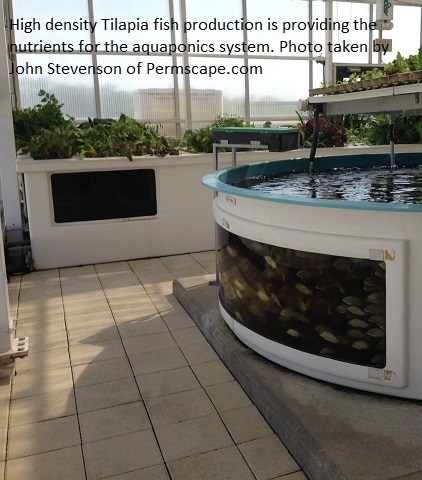
We focused on the aquaponics system as a complete echo system. We added composting worms and their castings. We introduced and supported beneficial bacteria. Fungi were added along with plants which provided biomass, beneficial insects, and their habitat. The system was not solely for the production of annual vegetables. It was a living ecosystem.
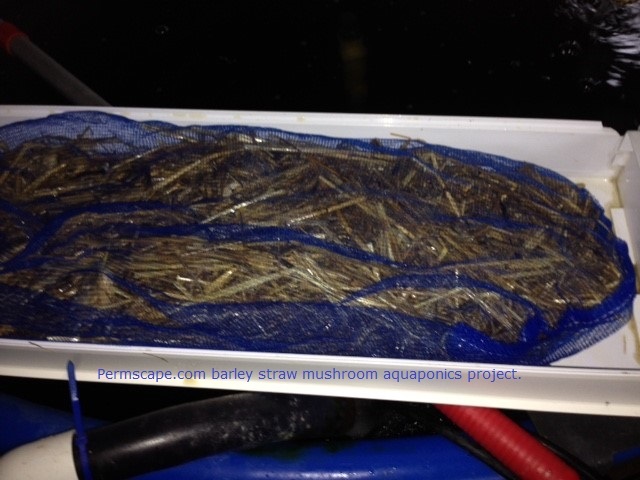
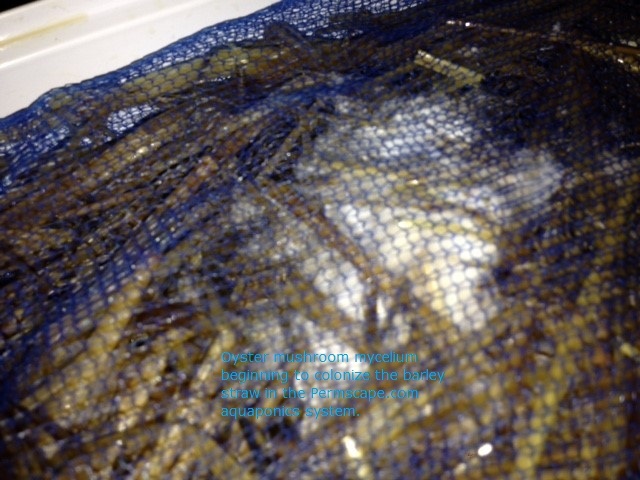
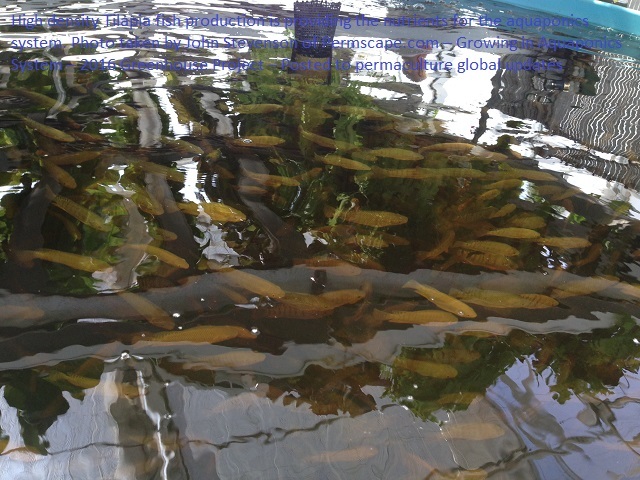
Much has changed over the years. Decoupled systems that include compost and hybrids which use soil in drip buckets and wicking beds have become much more popular. Many of us are working on ways to incorporate the lessons learned from research of Ruth Stout and Rudolf Steiner into our systems.
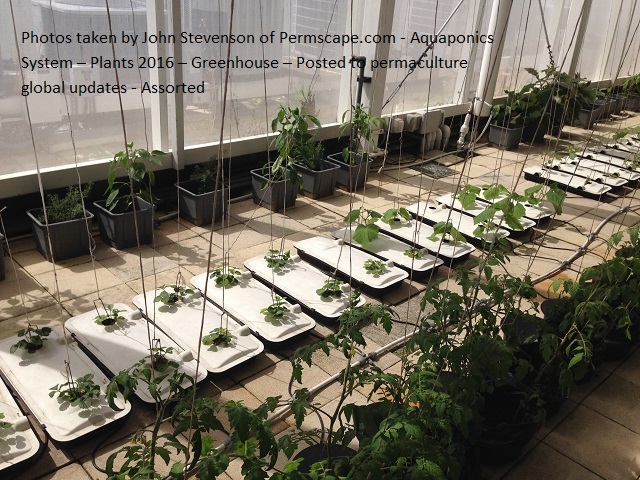
The bottom line is the more we build a living eco system to grow the plants, the more acceptable the practice will become. With all aquaponics has to offer, this USDA win will motivate new farmers to begin growing fish and plants together.
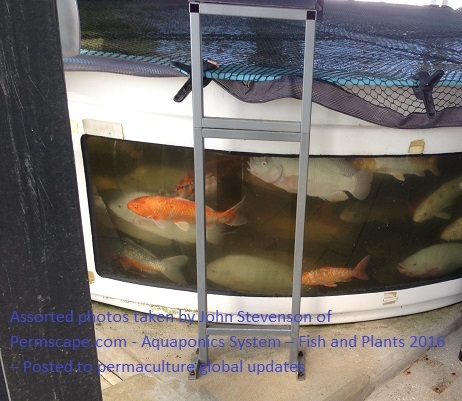
Modern day aquaponics is conserving water, eliminating pollution and erosion from runoff, removing toxic chemicals from the growing process, and most importantly creating sustainable safe mercury free fish protein and vegetables using minimal inputs while recycling water.
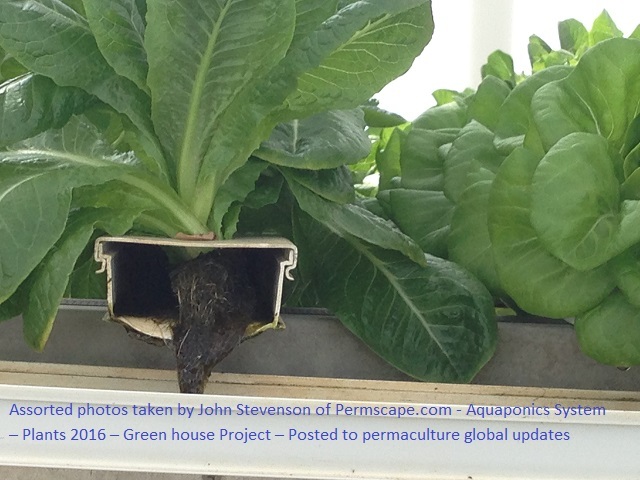
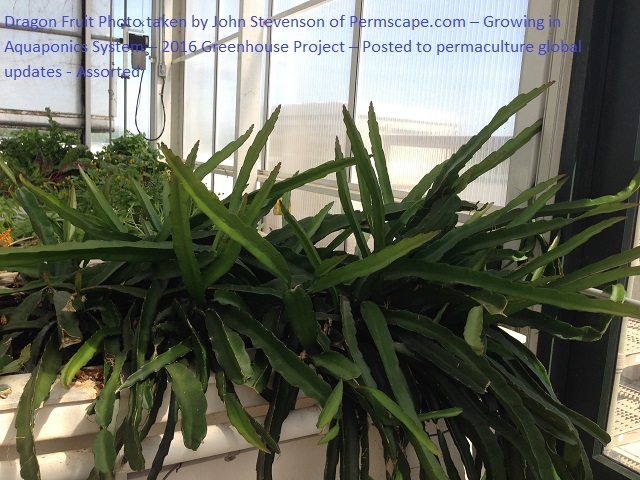
For more information see the below links:
https://www.ams.usda.gov/sites/default/files/media/Hydroponics%20package.pdf
https://www.ams.usda.gov/sites/default/files/media/Transcript081417USDAWebConference.pdf
Some information taken from Permscape.com Permscape(TM)
You must be logged in to comment.


| Permaculture Design Course 2015 |
| Type: Permaculture Design Certificate (PDC) course |
| Verifying teacher: Salah Hammad |
| Other Teachers: Geoff Lawton |
| Location: On-Line |
| Date: Feb 2015 |

| Geoff Lawton |
| Type: Geoff Lawton Online PDC |
| Teacher: Geoff Lawton |
| Location: Online |
| Date: Feb 2015 |

| Geoff Lawton |
| Type: Geoff Lawton Online Earthworks |
| Teacher: Geoff Lawton |
| Location: Online |
| Date: Feb 2015 |

| Geoff Lawton |
| Type: Geoff Lawton Reading the Landscape |
| Teacher: Geoff Lawton |
| Location: Online |
| Date: Feb 2015 |
| 2 PDC Graduates (list) |
| 0 PRI PDC Graduates (list) |
| 0 Other Course Graduates (list) |
| have acknowledged being taught by John Stevenson |
| 0 have not yet been verified (list) |
| John Stevenson has permaculture experience in: |
|---|
| Cold Temperate |
| Cool Temperate |